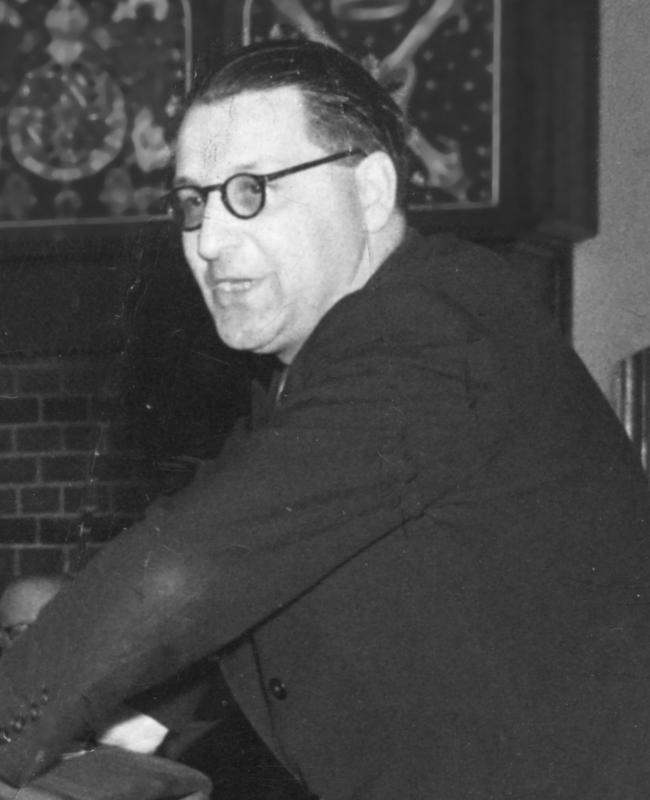1955
1) In your country, is there a National Association or simply groups representing specialists in political science? I would like to make it clear that the term should be understood rather broadly and, in principle, should be considered to apply to professors of Public Law and Government as well. In the event that such a group exists, would it be possible for you to send me its address and the name of the people in charge?
2) Is it possible to obtain a list of the specialists in political science and public law in your country?
Jean Meynaud
IPSA Executive Secretary, 16 March 1950
Those were the terms in which Jean Meynaud couched the standard letter that he sent to every corner of the world from March to May 1950 including Australia, Denmark, Lebanon, Yugoslavia, Italy, Argentina, Brazil, Chile, Ecuador, Cuba, Peru, Venezuela, Colombia, South Africa, Hungary, Pakistan, Ireland, Japan, Uruguay, Finland, and Portugal. If Meynaud did not have the names of any political scientists for a particular country in his address book, he wrote to representatives of other disciplines and even to government ministers. He unwittingly demonstrated how little political scientists of different nationalities knew about each other at the time by writing to a former Finnish Minister of Justice, Tauno Suontausta, even though the Finnish Political Science Association had been in existence since 1935.
Meynaud's recruitment efforts were successful, and by the end of 1955, IPSA had 23 new collective members. The majority of these members were from Western countries, with the addition of national associations from Israel, Mexico, Brazil, Japan, Poland, Yugoslavia, Australia, Cuba, and Ceylon, as well as the Soviet Union.
This success was not achieved without controversy. For instance, in 1952, the issue of German admission provoked an angry outcry from the Israeli Association, which had been a member since 1950. The admission process lasted nearly two years and required the German Political Science Association to present various supporting documents and Prof. Meynaud visited Germany to have various meetings with the German Association. Only after these steps were completed did IPSA admit the Germans as a collective member.
Tensions surrounding the Soviet Association’s potential membership in the World Congress were already high before a formal application was made. In late 1954, Jean Meynaud invited representatives of the USSR to the 1955 IPSA World Congress of Political Science in Stockholm, Sweden, which was met with criticism from IPSA President W.A. Robson (1952-1955):
I do not think we ought to invite participants to the Stockholm Congress from the USSR and other countries behind the iron curtain without the agreement of the Executive Committee of the IPSA. To invite representatives of the USSR for the first time raises a question of policy on which very strong opinions may be held both by member associations and by members of the Executive Committee. It is therefore necessary, in my opinion, that our colleagues should be given an opportunity to express their views before any action is taken. Not to consult them may provoke violent reactions and criticism from our colleagues and their associations. Moreover, some political scientists may be unable to attend a Congress if official spokesmen of the USSR are present.*
The incident not only revealed the susceptibility of political science to the international tensions of the period but also had an immediate consequence on the functioning of IPSA, leading to Jean Meynaud's resignation as Executive Secretary following the Stockholm Congress. The Soviet Association was admitted as a collective member, although the decision was not entirely made by IPSA. Russia's entry into UNESCO made it awkward to exclude the country from an international association established under UNESCO's auspices.
*Letter from William A. Robson to Jean Meynaud, 24 December 1954.
List of IPSA's Collective Members












